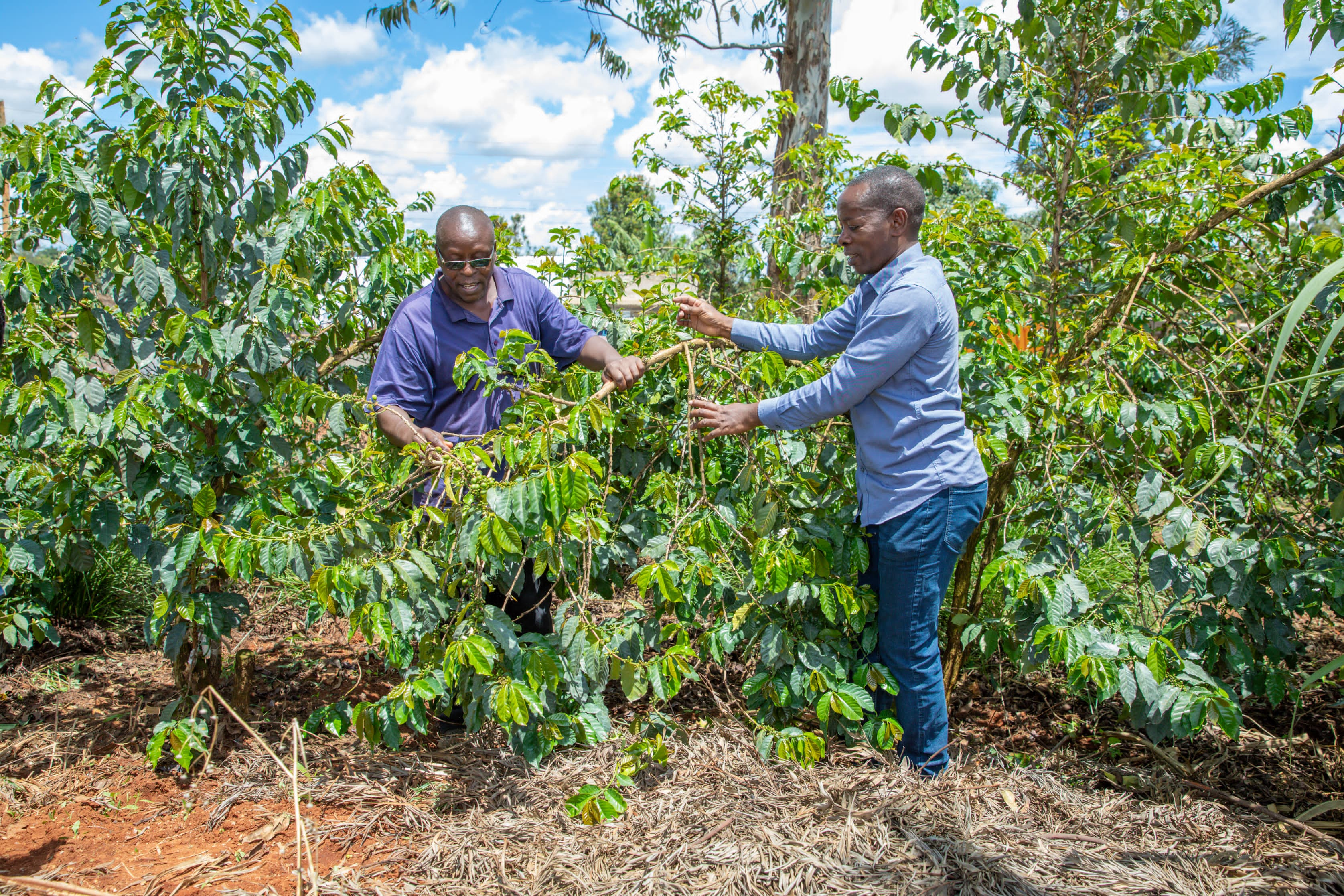
 Coffee farmers in a farm in Baragwi, Kirinyaga county.
Coffee farmers in a farm in Baragwi, Kirinyaga county.The Agriculture and Food Authority has geomapped 30 per cent of the land occupied by coffee in a bid to beat this year's December 31 deadline set by the European Union.
The authority is racing against time to geomap all land under coffee in the country to fulfil strict European Union Deforestation Regulations (EUDR) set to take effect by the end of the year to avoid losing the market.
The EUDR requires all agricultural products entering the EU be traceable and produced on land that has not undergone deforestation after December 31, 2020.
The law specifically targets commodities like cattle, cocoa, coffee, palm oil, rubber, soy and wood. It applies to traders who place relevant commodities and their derived products on the EU market or export them from the EU.
The law came into force on June 29, 2023, and mentioned the expansion of agricultural land linked to the production of the listed commodities as the main driver of deforestation.
The EU noted that as a major economy and consumer of the commodities linked to deforestation and their derived products such as leather, chocolate, tyres, or furniture forest degradation, it’s partly responsible for the challenge and wants to lead the way to solving it.
“To ensure full adherence to the regulation, the government through the Ministry of Agriculture and Livestock Development has embarked on a process to map out all the parcels of land under coffee farming in the country,” AFA director general Bruno Linyiru said.
He said about 32,688 hectares (80,773 acres) out of 109,384 hectares (270,293 acres) under coffee in 16 counties has since been geo-mapped.
Linyiru said the EU had initially set the compliance deadline at December 2024, but extended it to the end of this year to allow more time for compliance.
“This mapping exercise is being coordinated by the Agriculture and Food Authority (AFA), who is the regulator of all scheduled crops as mandated by the Crops Act, 2013,” he said.
Linyiru said several teams have been formed under the EUDR Data Committee comprising of the agriculture and co-operatives departments, Kenya Forest Service (KFS), Kenya Space Agency (KSA), Directorate of Remote Survey and Remote Sensing (DRSRS) and the Kenya Agriculture and Livestock Research Organisation.
The exercise, he said, is expected to be concluded in two months to allow local farmers to continue exporting their coffee uninterrupted.
The director general said Kenya exports about 55 per cent of its coffee to countries in the EU, making it a crucial market.
“The exercise will be completed in due time to meet the deadlines set by the EUDR because we have major markets in Belgium, Germany, Sweden, Netherlands and Finland—all under the EU,” Linyiru said.
He said more than 95 per cent of the local coffee is sold in the global market.
In the past five years, Kenya exported 122,699 tonnes of clean coffee to the EU, raking in about Sh90 billion, with smallholder farmers contributing about 70 per cent of the production and making the produce the backbone of the rural economy in 33 coffee-growing counties.
Last year, the country produced about 50,000 tonnes of green beans, with Kirinyaga leading with 5.49 million kilogrammes worth Sh5 billion. It was followed by Nyeri with five million kilogrammes worth Sh4.4 billion and Murang’a with 3.6 million kilogrammes worth Sh3.2 billion.
Instant Analysis
The authority is racing against time to geomap all land under coffee in the country in a bid to fulfil strict European Union Deforestation Regulations (EUDR) set to take effect by the end of the year to avoid losing the market. The EUDR mandates that all agricultural products entering the EU be traceable and produced on land that has not undergone deforestation after December 31, 2020. The law specifically targets commodities like cattle, cocoa, coffee, palm oil, rubber, soy and wood, and applies to traders who place relevant commodities and their derived products on the EU market or export them from the EU.












